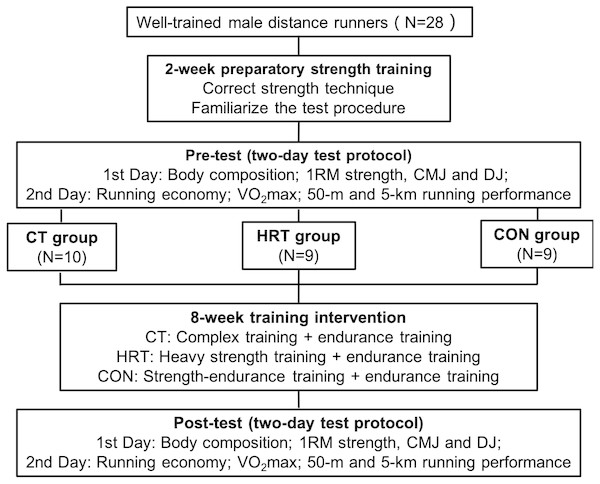
Background Recently, much attention has been paid to the role of neuromuscular function in long-distance running performance. Complex Training (CT) is a combination training method that alternates between performing heavy resistance exercises and plyometric exercises within one single session, resulting in great improvement in neuromuscular adaptation. The purpose of this study was to compare the effect of CT vs. heavy resistance training (HRT) on strength and power indicators, running economy (RE), and 5-km performance in well-trained male distance runners. Methods Twenty-eight well-trained male distance runners (19–23 years old, VO2max:65.78 ± 4.99 ml.kg−1.min−1) performed one pre-test consisting of: maximum strength (1RM), counter movement jump (CMJ) height, peak power, a drop jump (DJ), and RE assessments, and blood lactate concentration (BLa) measurement at the speeds from 12–16 km.h−1, a 50-m sprint, and a 5-km running performance test. They were then divided into 3 groups: complex training group (CT, n = 10), that performed complex training and endurance training; heavy resistance training group (HRT, n = 9) that performed heavy strength training and endurance training; and control group (CON, n = 9) that performed strength-endurance training and endurance training. After the 8 weeks training intervention, all participants completed a post-test to investigate the training effects on the parameters measured. Results After training intervention, both the CT and HRT groups had improvements in: 1RM strength (16.88%, p
Δεν υπάρχουν σχόλια:
Δημοσίευση σχολίου